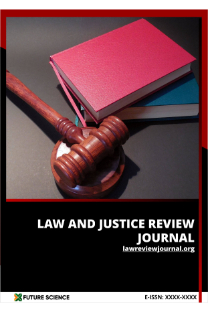THE COMPERISON OF THE CORPORATE GOVERNANCE MODELS OF THE UNITED STATES, THE UNITED KINGDOM AND GERMANY
Ameri̇ka Bi̇rleşi̇k Devletleri̇, İngi̇ltere ve Almanya Ortaklık Yöneti̇mi̇ Modelleri̇ni̇n Karşılaştırması
___
Books & ArticlesClarke T, International Corporate Governance: A Comparative Approach, (Routledge Publisher, 2007)
Easterbrook FH, International Corporate Differences; Market or Law? in US Corporate Governance, Chew D and Gillan S L (eds), (Colombia University Press, 2009), 23-29
Franks J and Mayer C, Corporate Ownership and Control in the UK, Germany and France, in Chew D and Gillan S L (eds), (Colombia University Press, 2009) 239-261
Garret A, Comparison of United Kingdom and United States Approaches to Board Structure, (2007), CCLR, 3(2)
Goergen M, International Corporate Governance, (Pearson Education Ltd, Essex, 2012)
Glaub T, Lessons from Germany: Improving on the US Model for Corporate Governance, (2009) ILMR, 5 (2)
Holmstrom B and N Kaplan SN, The State of US Corporate Governance: Whats Right and Whats Wrong? in US Corporate Governance, Chew D and Gillan SL (eds), (Colombia University Press, 2009), 29-35
Jungmann C, The Effectiveness of Corporate Governance in One - Tier and Two Tier Board Systems Evidence from the UK and Germany, (2006) ECFR, 426-474
Mallin CA, Corporate Governance, 3rd ed, (Oxford University Press, Oxford, 2010)
Owen G, Kirchmaier T, Grant J, Corporate Governance in the US and Europe: Where Are We Now? in Corporate Governance in the US and Europe, Owen G, Kirchmaier T, Grant J, (eds) (Palgrave Macmillan, 2006), 1-21
Plessis J and Sandrock O, The Rise and Fall of Supervisory Codetermination in Germany? (2005), ICCLR, 16(2)
Rickford J, On Corporate Governance Systems- How much convergence?, in Corporate Governance in the US and Europe, Owen G, Kirchmaier T, Grant J, (eds) (Palgrave Macmillan, 2006) 25-30.
Ringe WG, The European Company Statute in the Context of Freedom of Establishment, (2007), JCLS, 7(2), 185-212
Roe MJ, The Political Roots of American Corporate Finance, in US Corporate Governance, Chew D and Gillan S L (eds), (Colombia University Press, 2009) 17-40
Salacuse JW, Corporate Governance in New Century (2004), Company Lawyer, 2004, 25(3)
Solomon J, Corporate Governance and Accountability, 2nd edn, (John Willey & Sons Press, West Sussex, 2007)
Tafara E, Remarks on UK and US Approaches to Corporate Governance and on the Market for Corporate Control (2007), SEC speech, _____http://www.sec. gov/news/speech/2007/spch020807et.htm> accessed on 31.12.13
Werder A V and Talaulicar T, Corporate Governance in Germany: Basic Characteristics, Recent Developments and Future Perspectives, Handbook on International Corporate Governance: Country Analyses, 2nd edn, Mallin C A (eds), (Edward Elgar Publishing Limited, 2011)
Zhi L, The Research on the Problems of CEOs Legal Status and Legal Liability, (2009), IJLM, 51(4), 245-259
- ISSN: 1309-9485
- Yayın Aralığı: 2
- Başlangıç: 2010
- Yayıncı: Türkiye Adalet Akademisi
THE COMPANIES ACT 2006 IN THE UNITED KINGDOM AND ITS IMPACT ON THE ENGLISH LEGAL SYSTEM
THE PROTECTION OF REFUGEES AND ASYLUM SEEKERS AGAINST EXTRADITION UNDER INTERNATIONAL LAW
A STUDY ON CONFISCATION WITHOUT EXPROPRIATION IN THE TURKISH LAW
CHAPTER 23, JUDICIARY AND FUNDAMENTAL RIGHTS; THE ENGINE FOR THE REFORM PROCESS IN TURKEY
EU ENLARGEMENT MACHINERY AND THE UNIQUENESS OF TURKEY'S PROTRACTED CANDIDACY
Yücel OĞURLU, Seda KALKAN BAĞDATLI
POLITICS IN LAW PRACTICE: ECHR'S APPROACH TO THE DISSOLUTION OF POLITICAL PARTIES
